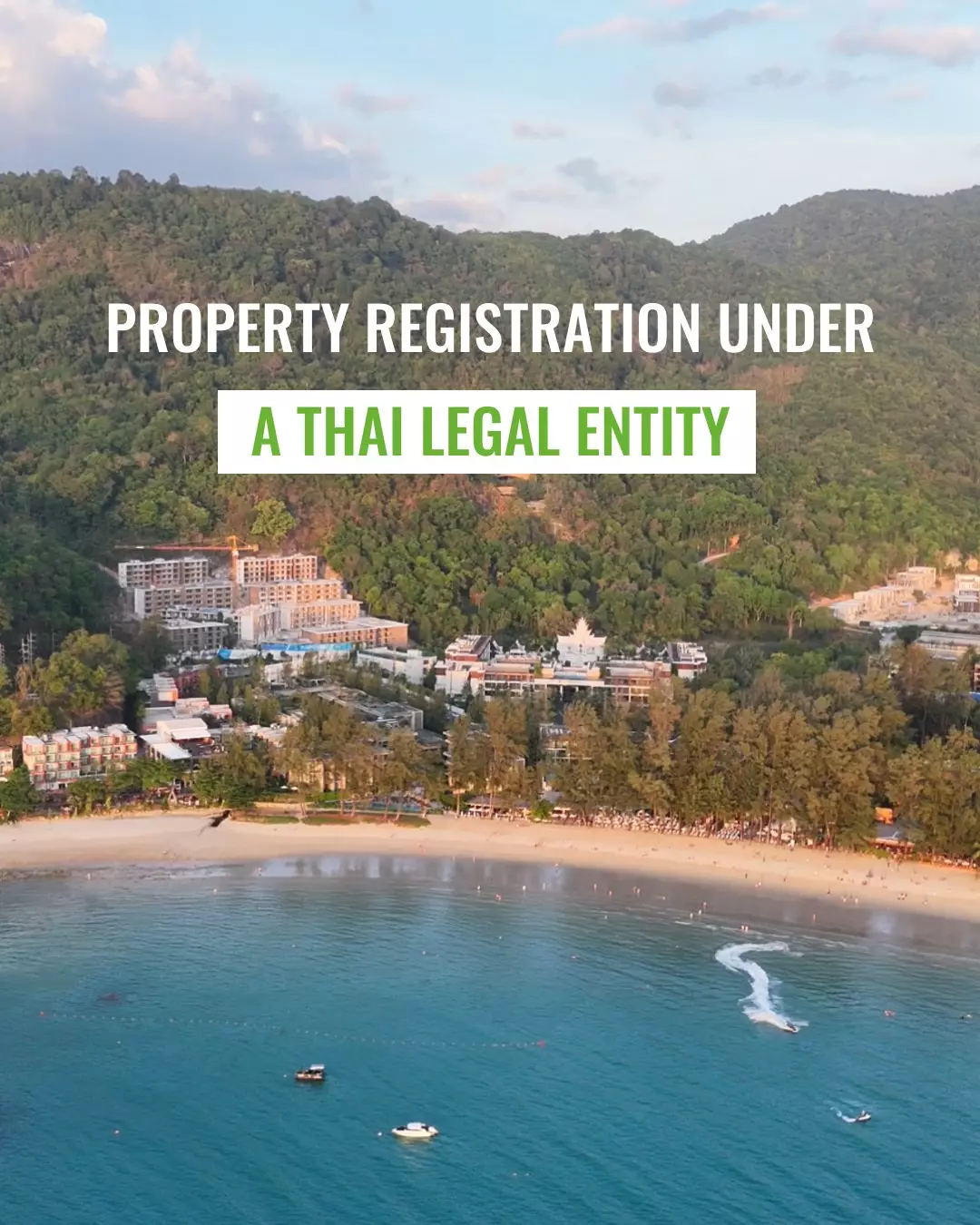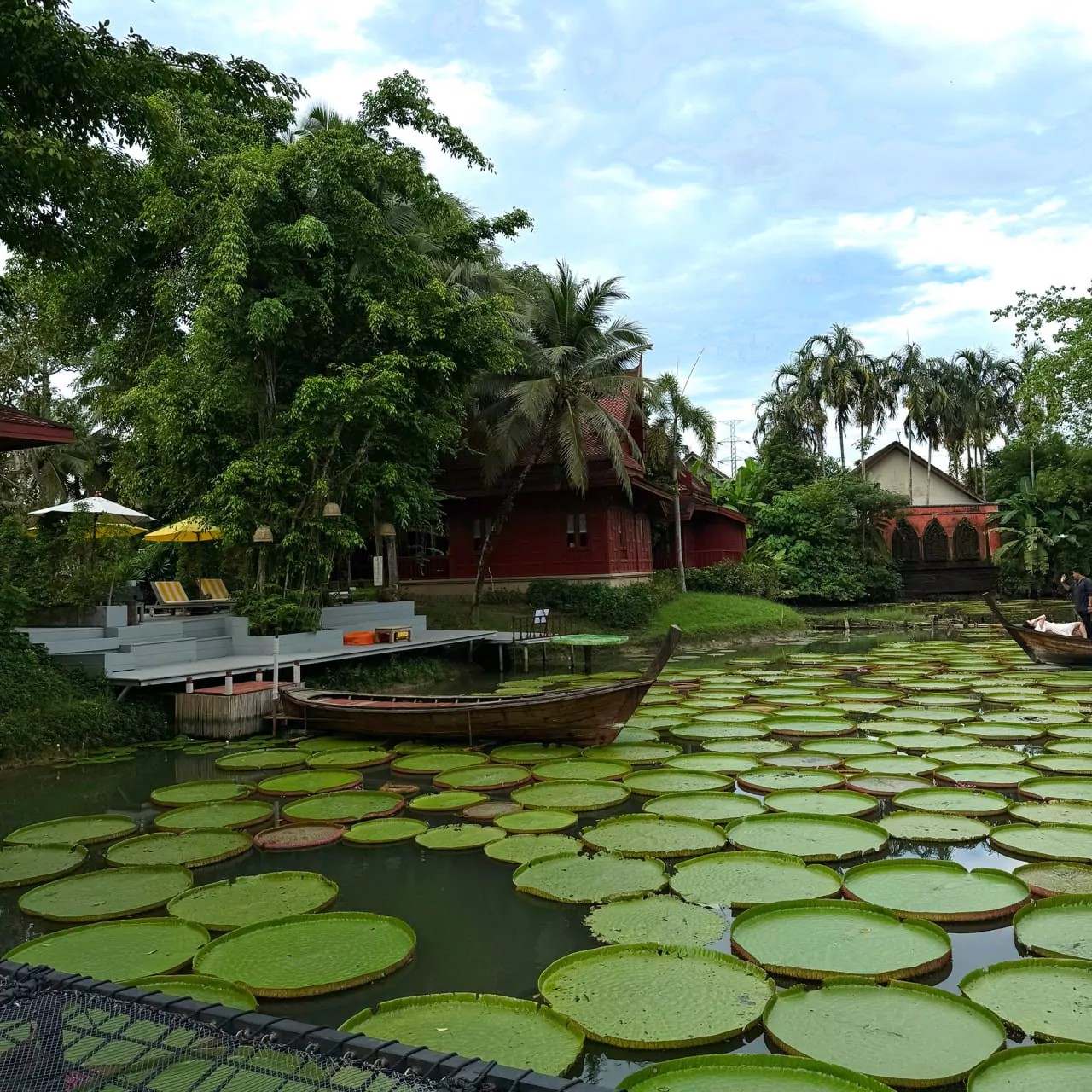Property registration under a Thai legal entity
How to Register Property in Phuket Under a Thai Legal Entity
Buying property in Phuket is possible through several legal methods with different ownership rights. Different ownership structures offer varying degrees of control, each with its own pros and cons. In this article, we’ll go into detail about how to register property under a Thai legal entity and why it might be necessary.
Foreign Ownership Rights in Thailand
Any foreign national has the right to purchase property in Phuket, but not all purchases grant full ownership rights. There are two main types of property ownership in Thailand:
Freehold – Full and perpetual ownership of the property. The owner has absolute rights to use, rent out, sell, or bequeath the property.
Leasehold – Ownership for a limited time, usually through a long-term lease. The leaseholder rents the property for a long period but does not fully own it. Standard lease terms are 30 years, with the possibility to renew twice, totaling a maximum of 90 years. Inheritance rights for leasehold properties may be restricted by the lease agreement.
Based on these regulations, foreigners can freely purchase:
- Condominiums – Foreigners can fully own a condominium unit, with up to 49% of the total condominium space registered as Freehold.
- Houses (but not the land) – Foreigners can own the structure, but the land it’s built on must either be leased or owned by a Thai national.
Foreigners cannot directly purchase:
- Land – Thai law prohibits foreigners from owning land outright. Typically, land is acquired through long-term Leasehold agreements. However, there are legal structures that allow for indirect land control.
To acquire full ownership of land, it must be registered under a Thai legal entity. This method is not suitable for everyone, and such transactions are closely monitored by the authorities. Therefore, it’s important to research thoroughly and consider whether you plan to purchase property using this approach.
Ways to Purchase Property Under a Thai Legal Entity
- Registering a New Company
According to Thai law, a foreigner cannot own more than 49% of the shares in a company that acquires property. The remaining 51% must be held by Thai shareholders.
Through a series of legal mechanisms, the foreign shareholder can become the controlling party in the company and have the final say, despite holding a minority share. We’ll explain how this structure can be implemented at the end of the article.
- Purchasing an Existing Company with Property in Thailand
An alternative way to acquire property is to buy an already-registered Thai company that owns the desired asset. In this case, the transaction involves a change of shareholders, while the property remains under the company’s ownership.
Key points:
- Simplified process – No need to register a new company, just a transfer of shares.
- Ownership continuity – The property stays with the company; only the shareholders change.
How to Mitigate Risks
Make sure there are no outstanding debts, lawsuits, or encumbrances on the property. Check the company’s tax history and the reputation of previous owners to avoid any links to questionable activity. A thorough legal audit is strongly recommended before the purchase.
Important Note: Lawyers advise registering property under a Thai legal entity only if you genuinely plan to conduct business in Phuket. Thai authorities actively monitor companies that own property but do not operate. These “shell” companies may face fines, and nominee directors could be subject to penalties, including imprisonment.
Registering a New Legal Entity in Thailand: What to Pay Attention To
Thai laws create an interesting paradox: officially, land and houses must belong to local citizens, but control over them can still remain in foreign hands. Let’s take a closer look at how this works in practice.
A Thai company acts as a kind of “container” for owning property. While 51% of the shares are officially held by Thai nationals, the real control often belongs to the foreigner with 49%, who pulls all the strings behind the scenes. This is made possible through clever legal structuring.
A key element is the position of director. The company’s founding documents state that the foreign shareholder is appointed as the director, giving them full signing authority on all documents and transactions. Bank accounts, real estate deals – everything is under their control. The registering authority issues a certificate listing all directors, but it’s important to understand that the Thai shareholders are just “paper shadows.”
The director role offers the foreigner legal protection. This is further reinforced by blank share transfer agreements (endorsements) signed in advance by Thai shareholders, allowing the foreigner to reassign shares to themselves or new nominee owners at any time. In practice, this means the “shadows” can be replaced at will without touching the company or its assets.
Preferred shares provide additional control. One preferred share can carry more voting power than multiple regular ones. This mathematical trick allows the minority 49% stake to turn into a majority decision-making power – for example, 10 votes from the foreigner versus 2 votes from the Thai nominee shareholders.
In the end, the foreign shareholder, acting as the director, has the exclusive right to use the company’s property. Each case is unique, so the structure for registering property under a Thai legal entity may vary.
That said, this is not the easiest method and requires considerable effort. Owning property through a Thai company means additional expenses for company registration and ongoing accounting services. We strongly recommend consulting with qualified legal professionals and treating every step of the process with care.



























